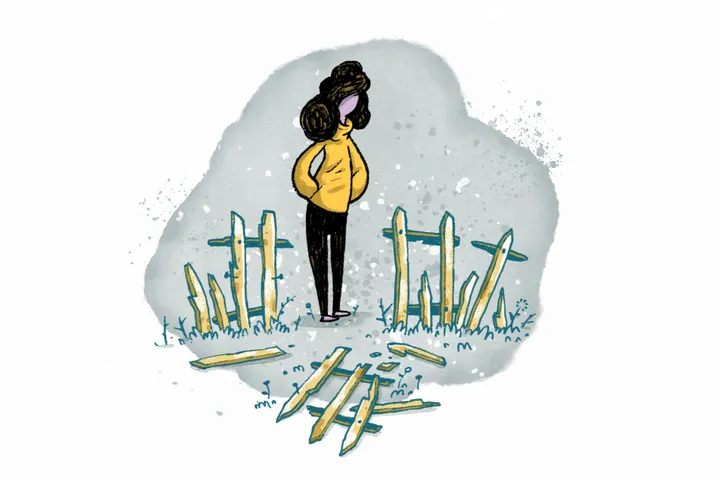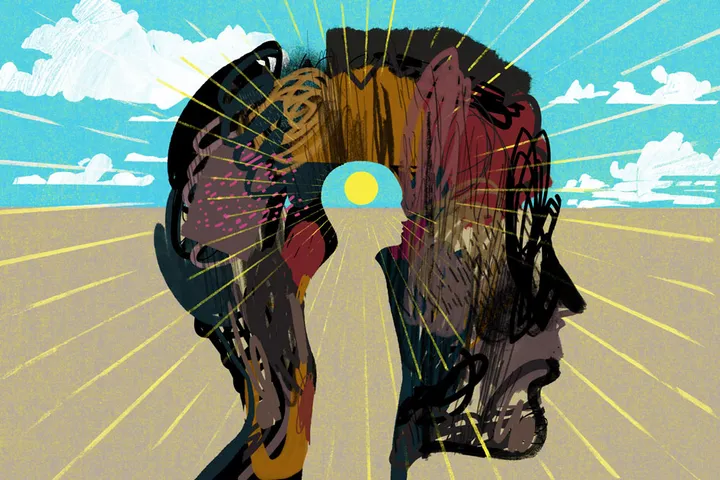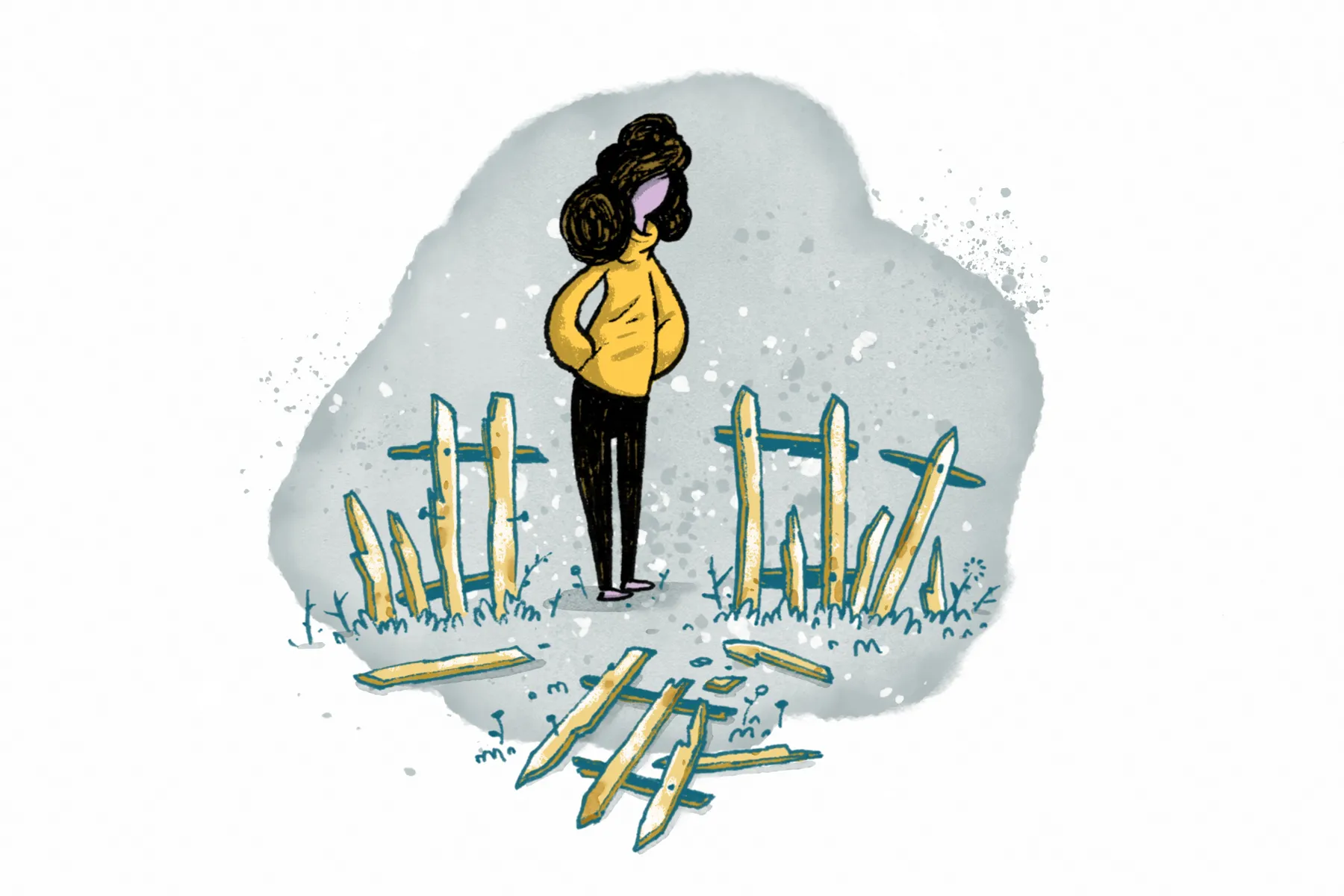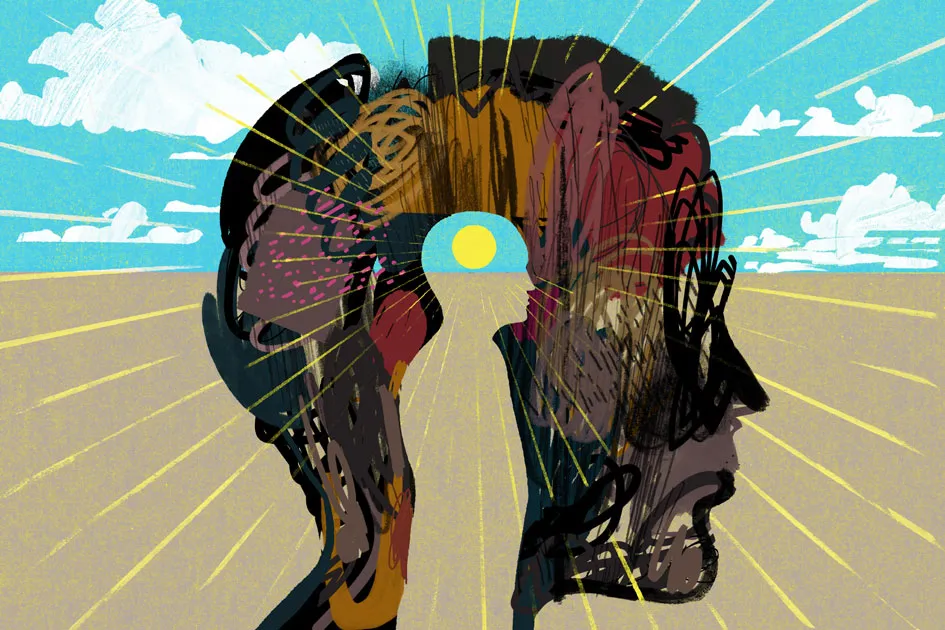In a tiny church with grass-woven walls, I met 8-year-old “Api Girl” and her family while sitting on a straw-covered dirt floor. I was visiting my son, a medical missionary in the Western Highlands of Papua New Guinea. Api Girl sat on the floor surrounded by her family—her 10-year-old brother, Mama Bubu (grandma), an aunt, and six cousins. But it was her Papa Bubu (grandpa) she stayed by, clutching his hand and leaning her head into his chest.
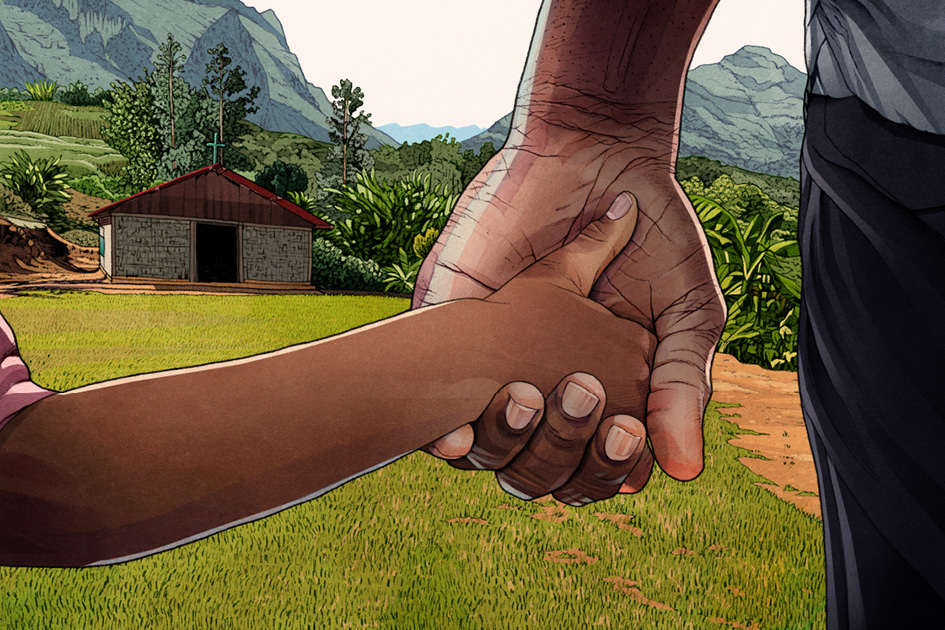
Illustration by Adam Cruft
In the Pidgin of Papua New Guinea, Api means “happy,” but to the average American, her life appears very unhappy. Two years ago, both her mom and dad died. Now she lives in a small village without electricity or running water. She has bone cancer but no options for chemo or radiation. She is dying.
At some point, I can’t help but ask, “God, why is there so much suffering? Why this 8-year-old girl? My God, what do You have to say for Yourself about all this suffering?”
The Bible does not supply a full answer to everyone’s suffering stories—yours or mine or Api Girl’s—but it does give some solid clues, like big pieces to a jigsaw puzzle. Consider this piece from the Bible: The God of the universe has entered our suffering. His name is Immanuel—"God with Us.” God dying on a cross for us. The God who enters into our pain, sin, and anguish. Or consider this: We live in a fallen world—a world bent and broken and abnormal from sin and its consequences. Every Christian can say, “This broken world is not the way it’s supposed to be!” And yet, it’s the way it is.
There are more pieces, but this is my favorite: God has a plan to deal with suffering—He will abolish it for good. The book of Isaiah drops dazzling image after image of this promise. God our heavenly Father will turn weapons of war into plowshares (Isa. 2:4); He will create a new world where wolves dwell with lambs (Isa. 11:6; Isa. 11:9); God will become a stronghold for the poor as He makes “a feast of rich food” and wipes every tear from our eyes (Isa. 25:4-8 NIV).
Isaiah’s prophetic song of redemption reaches a crescendo in chapter 65 when the living God says, “For, behold, I create new heavens and a new earth; and the former things [meaning all the pain and tears of the suffering] will not be remembered or come to mind” (Isa. 65:17). Then God declares two startling “no more’s”: “No more shall be heard in [Jerusalem] the sound of weeping or the cry of distress” and “No more shall there be in it an infant who lives but a few days” (Isa. 65:19-20 ESV, emphasis added).
The entire passage addresses the anguished questions I raised earlier, asking what God has to say about suffering. God replies, Listen to this: I will abolish it. With the full force of My wrath, I will vanquish it. I will enter the stage of world history and say, ‘No more’ to suffering. He will wipe away all signs of death and return the world to “very good” (Gen. 1:31). For the follower of Jesus, God’s response to suffering concludes in heaven, but it starts on earth and we’re given glimpses even now.
That day in the grass-walled church, Pastor Anthony—a chaplain from the Kudjip Hospital where my son works—opened his Bible and preached a 10-minute sermon. He spoke on the resurrection of Jesus from Luke 24, often addressing Api Girl directly. My son translated his simple but powerful message on how the risen Jesus fills us with hope for our own resurrection. It was beautiful. No one moved. No child even fidgeted. Everyone was listening. The message made me long for heaven, the place of God’s “no more.” Api Girl and her Bubus are genuine followers of Jesus, so it still makes me tear up to think of her glorious, joy-filled destiny in and through Jesus.
But there’s more. About 60 years ago, the gospel came to Papa Bubu’s village, and his father became a follower of Jesus. So Papa Bubu grew up in a Christian home. He still follows Jesus and is even an elder in his church. When we talk about Jesus, he smiles as his eyes glisten with joy. For centuries the men of the Western Highlands lived by strict laws of violence and revenge. Now this old man, transformed by Christ, never leaves the side of his granddaughter. When we all stand, walk outside the church, and look at the gorgeous mountains in the distance, he’s still holding her hand. Such tenderness! Such gentleness!
I recalled Jesus’ words in Revelation—I will wipe away your tears… Behold, I make all things new (Rev. 21:1-5). God’s pain-ending reign is coming. But it’s also already starting to break in now. On that straw-strewn church floor, I got a foretaste of God’s answer to suffering, and it was good.

